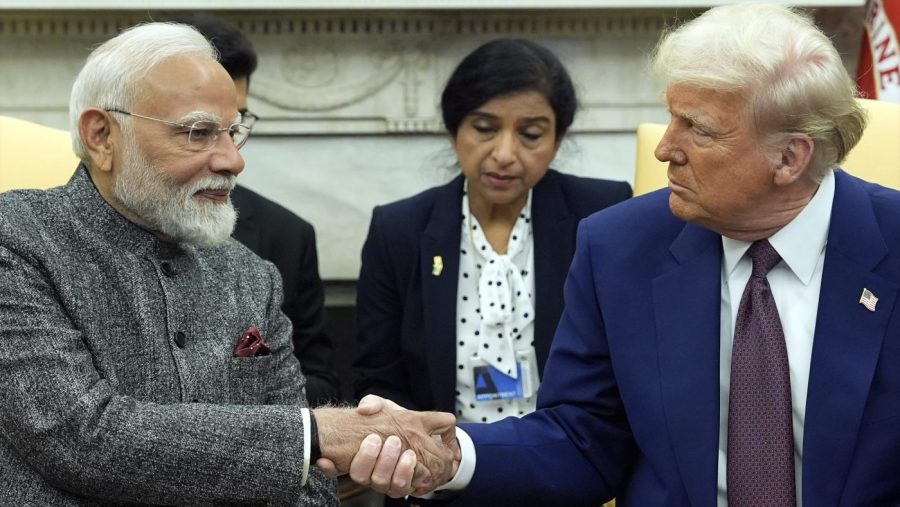Trump Meets Modi Amid Tariff Tensions, Senate Confirms RFK Jr. as HHS Secretary
President Donald Trump met with Indian Prime Minister Narendra Modi at the White House on Thursday, following his announcement of reciprocal tariffs and the Senate’s confirmation of Robert F. Kennedy Jr. as Health and Human Services (HHS) Secretary. These developments mark significant shifts in U.S. trade policy and healthcare leadership.
Trump Proposes Reciprocal Tariffs
Prior to meeting Modi, Trump signed a memorandum directing his administration to consider implementing reciprocal tariffs. This move threatens to impose levies on U.S. imports from countries that place higher duties on American products. The White House stated that this plan “will seek to correct long-standing imbalances in international trade and ensure fairness across the board.” Trump announced the tariff plan on his social media platform, Truth Social, declaring, “TODAY IS THE BIG ONE: RECIPROCAL TARIFFS!!!” The president has not specified which countries will be targeted or how he defines “reciprocal.”
Potential Impact
Analysts warn that reciprocal tariffs could lead to broad tariff increases for emerging economies such as Brazil, China, India, Thailand, and Vietnam, which tend to have higher effective tariff rates on U.S. products. A sharp increase in tariffs could potentially depress global economic growth and exacerbate inflation.
Trump-Modi Meeting
The meeting between Trump and Modi comes at a crucial time for U.S.-India relations. India is the United States’ 10th-largest trading partner, while the U.S. is India’s largest. However, there is a trade deficit of $50 billion in India’s favor.
Key Points of Discussion
1. Trade and Tariffs: Trump has previously called India a “tariff king.”
2. Immigration: Modi can point to India’s acceptance of 104 deported migrants.
3. Defense and Technology: Recent deals include GE’s partnership with Hindustan Aeronautics and the sale of U.S.-made drones to India.
4. China: India is seen as integral to the U.S. strategy of containing China in the Indo-Pacific.
Senate Confirms Robert F. Kennedy Jr. as HHS Secretary
In a near party-line vote of 52-48, the Senate confirmed Robert F. Kennedy Jr. as the new Secretary of Health and Human Services. Kennedy, known for his controversial views on vaccines, faced opposition from Democrats and some Republicans during his confirmation hearings.
Key Points
– Sen. Mitch McConnell (R-Ky.) was the only Republican to vote against Kennedy’s nomination.
– Kennedy has agreed to involve Sen. Bill Cassidy (R-La.) in HHS hiring decisions and to maintain CDC website information stating that vaccines do not cause autism.
– There are concerns about Kennedy’s intentions to potentially fire thousands of federal employees at HHS and NIH.
Conclusion
These developments highlight the complex interplay between U.S. trade policy, international relations, and domestic healthcare leadership. The proposed reciprocal tariffs could significantly impact global trade, while Kennedy’s confirmation as HHS Secretary may lead to changes in U.S. healthcare policy. The outcomes of these decisions will likely have far-reaching consequences for both domestic and international affairs.









